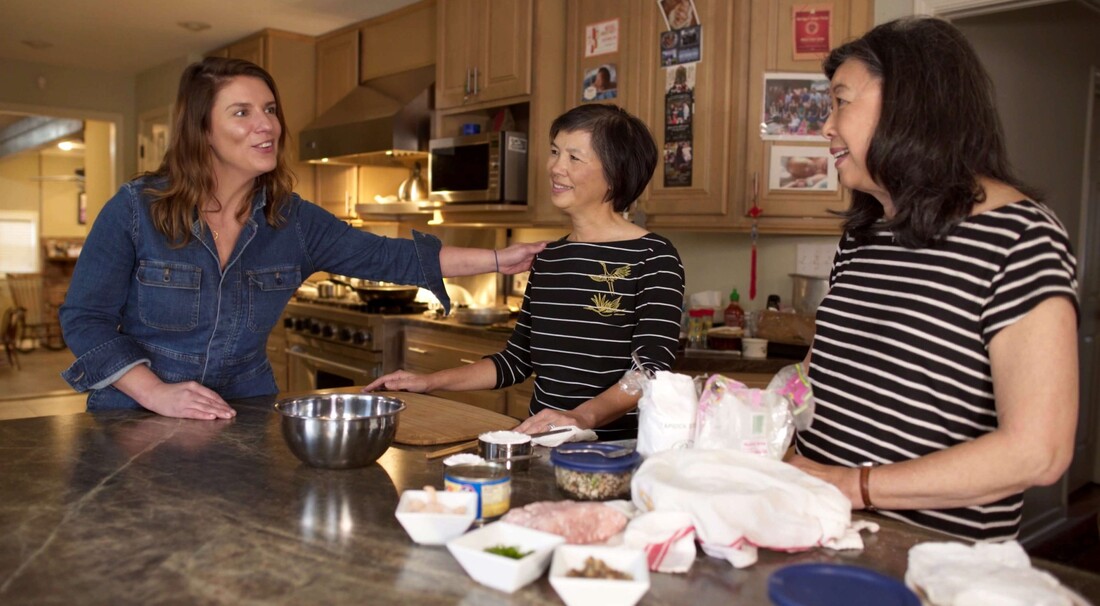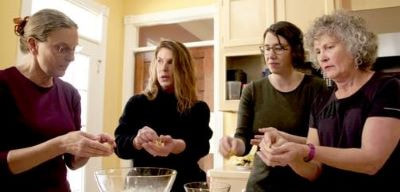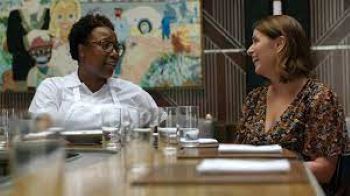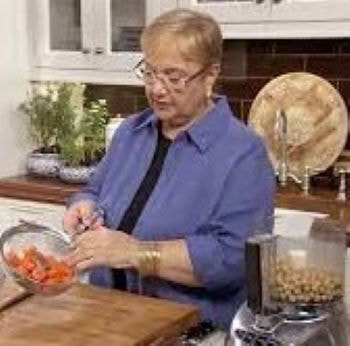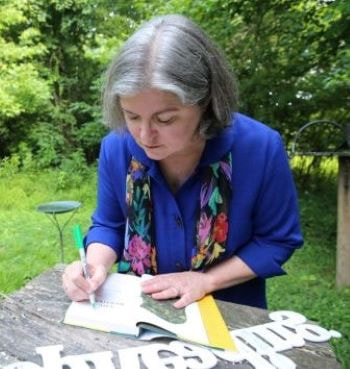|
Chinese faces and Southern accents. Jewish women with Southern accents. Black chefs talking about their specialties. These are some of the highlights of a great new PBS series, “Somewhere South,” starring Vivian Howard, a chef now starring in a role she was born to play – a wandering correspondent with curiosity, exploring the food and histories of the diverse peoples of the Southland, Howard is one of the great teachers who have enriched our lives in the past year, along with Lidia Bastianich, la maestra della cucina, and Margaret Renkl, one of the best reads in the NYT, explaining nature, literature and her native South. Howard has been on TV for a while, on reality television, as she and her chef-husband, Ben Knight, established contemporary restaurants in her native coastal North Carolina. From their adventures and misadventures, Howard branched out a season ago, getting southerners to talk about their lives and their food. I cannot cook at all – not a thing -- but I live well because of my wife’s eclectic and delicious cooking. As a journalist, I have also enjoyed my wandering around the South – some politics, some hard news, and a lot of time feeling the complexities. Now I enjoy watching Vivian Howard, a daughter of the South with a charming accent and a lively curiosity, as she gets Southerners to open up about their food and their lives, (One favorite moment was when a Korean-American chef sniffed at southern dumplings as essentially just doughballs.) Howard finds the way ethnic specialties survive: one show features Jewish women’s way of making matzoh ball soup, followed by Chinese chefs showing Howard to crimp the dough just right. Howard, it turns out, is a born journalist, not afraid to ask questions, eliciting the histories of her subjects. Chinese elders discussed how the older generation made money running restaurants and delicatessens, so their children could get educated and go into professions. In one thoughtful segment, Howard talked with modern Black chefs, some of whom seemed to test her for any signs of patronization….and then they all relaxed and had a good talk and a few laughs. Howard loves the South, much in the tradition of fellow North Carolinians -- Gene Roberts, the great NYT national editor who let me loose in Appalachia, and Charles Kuralt, the CBS host who roamed the country with a camera and his curiosity. At times I find myself thinking of poor Anthony Bourdain, visiting places like Bahia, Brazil, bringing his lusty appetite for unique places, food, drink, music and people. Two other great voices enriching the air waves belong to Lidia Bastianich and Margaret Renkl. Bastianich survived the upheavals in northeast Italy in World War Two and is now entrenched in northeast Queens, a staple on TV. My wife understands the fine points; I love the way Lidia tosses off vital tips about how to simmer, how to sprinkle, how to chop. She is never patronizing, always generously maternal, sharing her tricks.
As a wannabe Italian, I love her zest for Italian culture and history – and always look forward to the end of her session -- tossing off her trademark “Tutti a tavola a mangiare.” – Everybody to the table to eat! Lidia’s shows usually incorporated her beautiful mother, Erminia Motika, who passed peacefully at 100, this past Feb. 14. Our condolences a la famiglia. Finally, I want to praise the NYT editors for installing Margaret Renkl as a highly literate voice on the NYT website and in print. Renkl is at her best explaining the nature around her home in Nashville (one of my favorite American cities), as well as the ways of her native Alabama and the Deep South. I loved her recent poetic appreciation of the 17-year cicadas, and why they are good for the ecology. Who knew? https://www.nytimes.com/2021/05/10/opinion/cicadas-brood-x-2021.html My thanks to Vivian Howard, Lidia Bastianich and Margaret Renkl. Mille grazie, you-all. ###
Altenir Silva
5/17/2021 07:23:46 pm
Dear George,
George Vecsey
5/18/2021 02:46:22 pm
Dear Altenir: Thank you for the reaction to my post. I'm including a link for the show....There's a short segment on cooking greens...Marianne says she learned a lot about greens.(she made a kale soup recently.)
Altenir Silva
5/18/2021 06:07:14 pm
Dear George: Thank you so much for these links. There is a quote by a Brazilian advertiser named Nizan Guanaes that says: “Who was born in Bahia, in fact, was not born, they debuted to shine”. It is because Bahia is a place that gave great artists to Brazil and the world. 5/18/2021 08:14:43 am
George, food is one of the few necessities in life that can also be very enjoyable if you are adventurous.
George Vecsey
5/18/2021 02:48:53 pm
Alan, you're ahead of me. I'm happy when I pick up a good loaf from a few local shops.... Best to the chef., GV Comments are closed.
|
Categories
All
|
